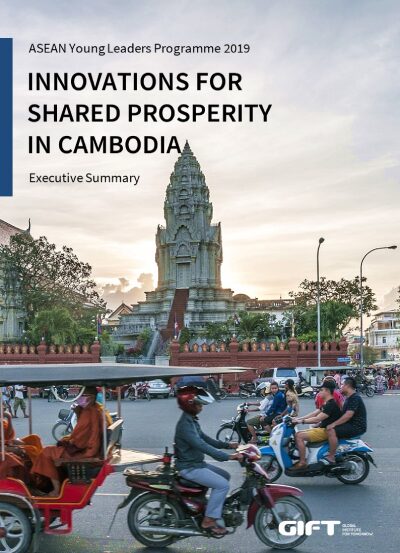Since the end of political conflict in 1979, Cambodia has achieved remarkable economic growth and development. However, decades of unbalanced growth have led to unsustainable demands on natural resources, alongside significant environmental degradation and social costs. Rising aspirations for a higher standard of living, combined with rapid and often unregulated development, will only intensify pressure on the country’s already constrained resources.
To maintain progress while safeguarding the environment and social equity, Cambodia must adopt a development model that balances prosperity with sustainability. The concept of Ecological Civilisation offers such a pathway, leveraging technology, planning tools, and economic mechanisms to provide quality living standards within environmental limits, protect social safety nets, and promote shared prosperity. This model is especially relevant as Cambodia aims to achieve upper-middle-income status by 2030, and it could also serve as a reference for sustainable growth across ASEAN.
The Model of Innovation
This report reimagines the role of innovation and technology, not as a reaction to commercial “pain points,” but as proactive tools to address social and environmental challenges. Starting from the Ecological Civilisation vision, it sets out guiding principles and measurable targets across five focus areas:
- Livelihoods, Education and Skills Development
- Agriculture and Rural Revitalisation
- Environment and Resources
- Public Health
- Culture and Wellbeing
Each target is supported by clear indicators and innovative ideas designed to improve quality of life while ensuring fairness for future generations. The proposed Innovation Model aims to inspire Cambodia’s government and institutions to address pressing societal challenges effectively.
Key Policy Recommendations
- Livelihoods & Skills
Ensure universal lower secondary education, expand vocational training, and improve teacher quality and digital learning access. - Agriculture
Achieve food self-sufficiency, grow agriculture’s GDP share, certify farms, improve rural water/sanitation, and strengthen local agri-ecosystems. - Environment
Reduce waste and car use, promote renewable energy and circular economy, and enhance forest, biodiversity, and water resource protection. - Public Health
Guarantee clean water, sanitation, and eco-labelled products; ensure healthcare access, adequate manpower, and improved data systems. - Culture & Wellbeing
Strengthen cultural education, expand arts and creative industries, connect community centres, and diversify funding sources.


